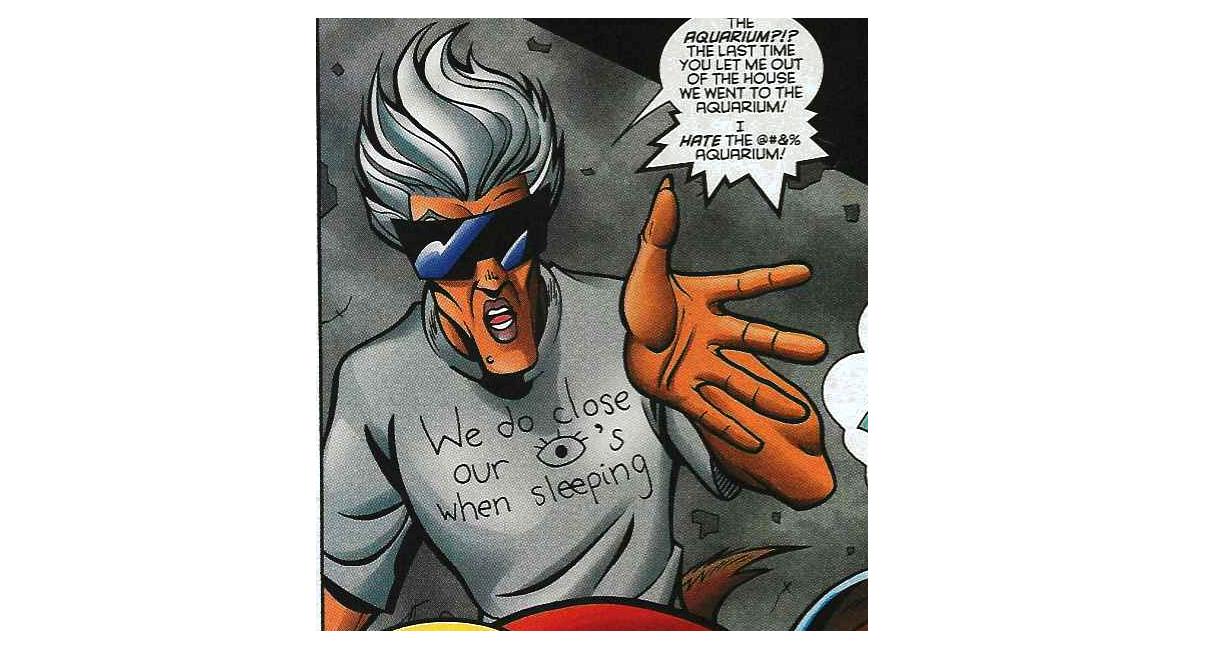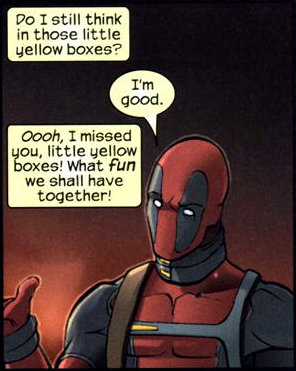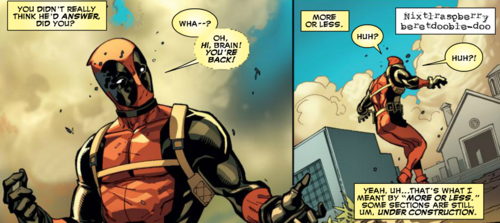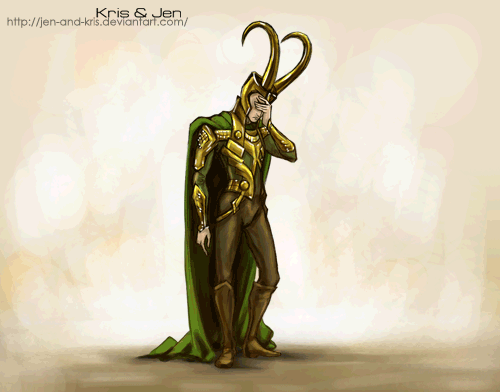
Deadpool (by ReillyBrown on DeviantArt) never seems to take bodily injury or even death seriously.
So last time I was talking about why Deadpool is NOT a hero. No where does he fit the description of a typical action hero. So does this mean he’s an anti-hero. Lets look at that definition.
antihero
an·ti·he·ro [an-tee-heer-oh] noun, plural an·ti·he·roes.
Encyclopedia Britannica Encyclopedia
antihero
a protagonist of a drama or narrative who is notably lacking in heroic qualities. This type of character has appeared in literature since the time of the Greek dramatists and can be found in the literary works of all nations. Examples include the title charactersof Miguel de Cervantes’s Don Quixote (Part I, 1605; Part II, 1615) and Henry Fielding’s Tom Jones (1749). Some examples of the modern, postwar antihero, as defined by the Angry Young Men,include Joe Lampton, in John Braine’s Room at the Top (1957),and Arthur Seaton, in Alan Sillitoe’s Saturday Night and Sunday Morning (1958).
From the beginning of his series, its been established that Deadpool’s first priority in anything is himself. He joined the military, not out of a sense of duty or patriotism, but simply for the money. He later volunteers for the Weapon X program simply to try and save himself from cancer. (As he notes himself in one of the later issues of Cable & Deadpool all origin continuity depends on which writer you prefer, this is the version I think makes the most sense.) Like a lot of us, he’s made bad decisions compounded by worse decisions. He has a hard time figuring out what the ‘right’ thing is and then doing it. Sometimes, his reactions to events are simply that, reactionary and while on the surface seem heroic, it was never his intention to be heroic. Then other times he’s desperately trying to be what he thinks of as heroic, which rarely works out well for anyone involved.
Cable tries repeatedly to help him rise above his self-inflicted mediocrity. It has rather mixed and questionable results. After a very public and very messy break up with Cable, Deadpool kidnaps Taskmaster who is a renowned mercenary in order to prove that he’s still a kick ass merc. After their fight and the failure of Deadpool’s plan this is what Taskmaster says to him:
Ouch, buuuurn. But therein lines the crux of the problem. Deadpool has no idea what he’s doing. He’s highly trained and extremely dangerous but completely unfocused. He basically just does whatever strikes his fancy. So . . . that leads us to the next topic. Is he a villain?
Definition of VILLAIN
Examples of VILLAIN
- He plays the villain in most of his movies.
- She describes her first husband as a villain who treated her terribly.
- Don’t try to make me the villain. It’s your own fault that you’re having these problems.
Origin of VILLAIN
Related to VILLAIN
Anti-Villain is an attempt to humanize, to lighten up, a villain as opposed to Anti-Hero, which has a tendency to darken the hero. Side by side, it can become hard to tell them apart. The only reason some would even be considered evil at all is because they’re the Designated Villain. Despite this humanizing characterization, they are rarely less dangerous; heroes won’t know what to expect when their enemy offers cookies and then attacks their reputation, without giving them an excuse to rationalize killing them.
They are probably well aware that what they’re doing is “evil”, unlike the blinded Knight Templar, but strive to maintain a facade of good PR. They’ll see it as a viable means to a (possibly) good end.” (http://tvtropes.org/pmwiki/pmwiki.php/Main/AntiVillain)
So what do you think? Which camp does Deadpool fall into, if any? Are there any other notable anti villains you can think of?

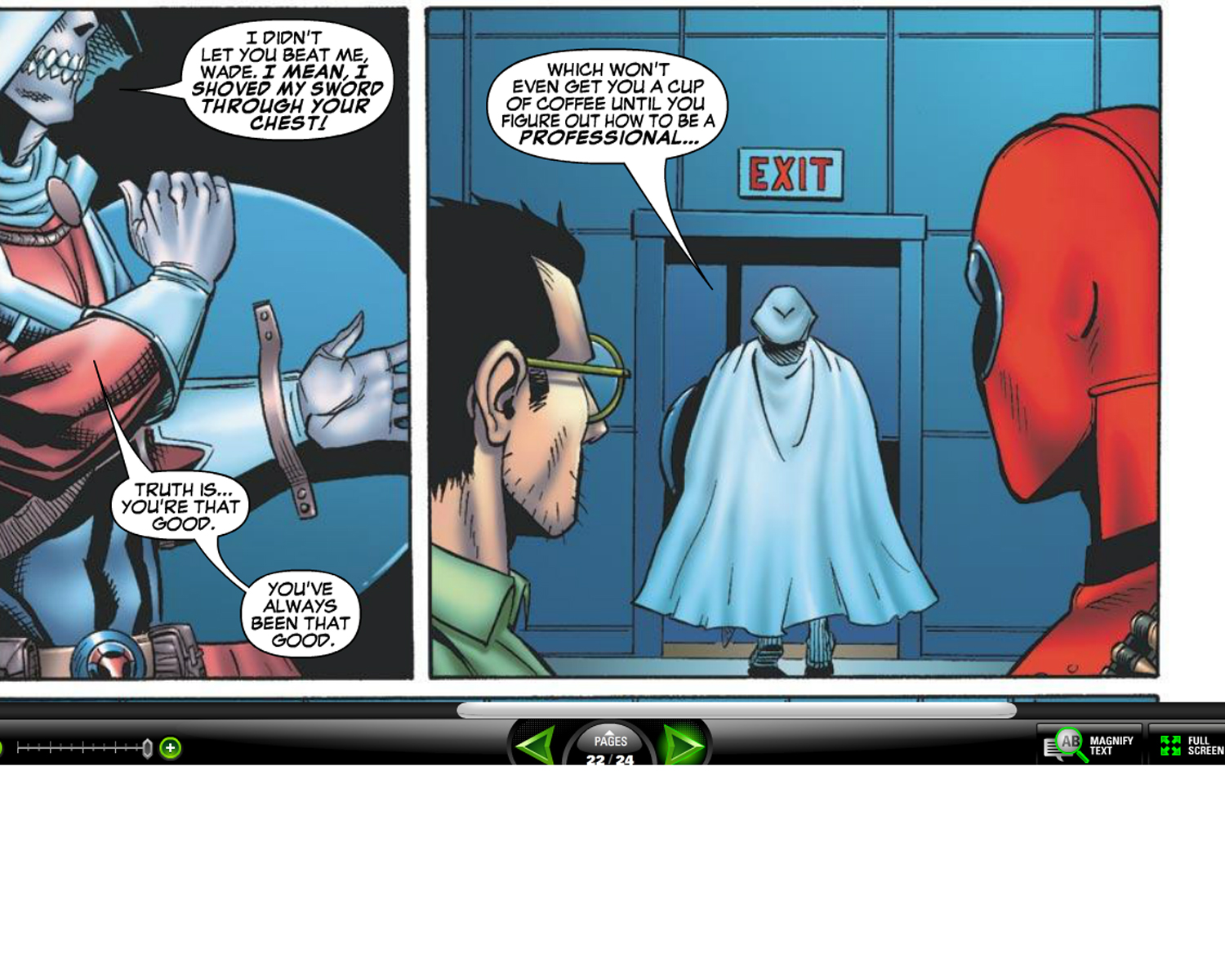
 See villain defined for English-language learners »
See villain defined for English-language learners »

